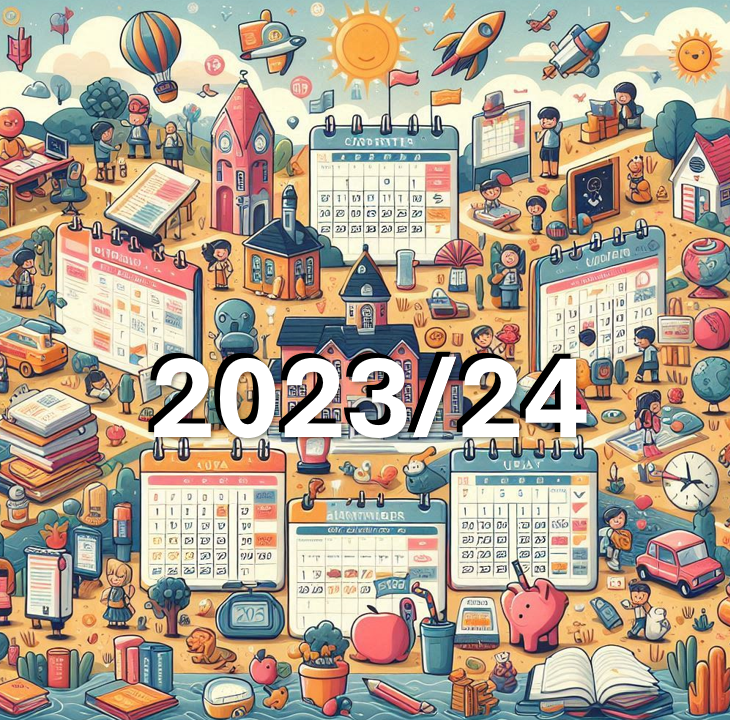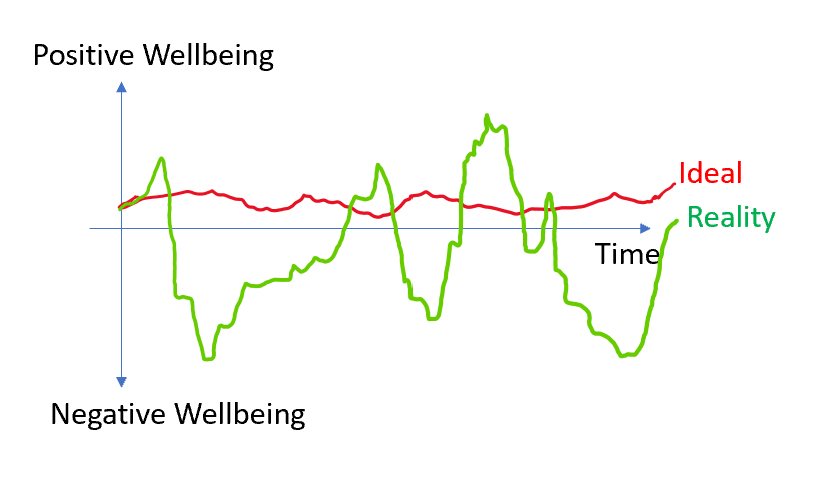
So the 2nd half of the half term begins and I spent my half term finding some time for myself including a bit of a holiday with some excellent company, but with a little bit of an intrusion from work. I went through some traumatic travel situations, as I often do, some poolside trauma and have had a difficult family issue arise. All this in a half term. So it got me thinking about wellbeing, which made me put fingers to the old keyboard and put this post together as I started the journey on my second of four trains for the day.
Wellbeing?
One of my first thoughts on wellbeing is simply the complexity of it. It’s a simple word and its easy to say your wellbeing is ok or not, or for wellbeing to be put on the agenda for weekly meetings, but what is wellbeing? Now am not going to say I have done any real research on this but for me there are a number of aspects including our physical fitness, our mental wellbeing, a spiritual element and well as elements related to stress, both positive and negative, agency, purpose, family and much more. It’s a bit of a complex soup of things yet I feel that often when organisations look at wellbeing they look for simple solutions where none really exist.
Work and wellbeing
I think this area is particularly complex. As mentioned in the intro, work intruded a little in my holiday abroad, through email notifications I saw on my phone which led me to feel the need to act and respond. I also had an emotional response to the message which had an impact where I had to that point being getting quite relaxed and very much in holiday mode. Now it is important to note that there was no explicit need in the emails for my response but I felt the need to respond. I had the agency to respond or not to respond, and had the agency to disable notifications had I wished. There was a lot in my control. But equally I feel there is an increasing narrative around the need to be efficient, to be effective, and therefore having identified an issue via a notification I felt a partially intrinsic but partially extrinsic need to act, independent of being on holiday or not. Technology facilitates many benefits but putting these notifications in front of me, may be the flipside, and negative side of this.
Stress
The word stress often brings with it a negative image. With the M5 closed, and being my main route to the airport, with all surrounding roads clogging up as everyone else, like me, sought to find alternatives, it certainly wasn’t positive stress I was experiencing and it wasn’t how I anticipated my holiday to begin. But equally the November ahead of me and the number of events which I will be contributing to, equally represents stress but I see it more as a positive challenge, challenging me to better prioritise, to network, to us resources at my disposal and to grow professionally. As I write this it gets me thinking of “desirable difficulty”. It therefore worries me that we seek convenience, ease and the status quo all too often. There is negative and avoidable stress that we should rightly seek to avoid. But equally there is a lot of stress which we should seek to embrace. From my holiday one such stress was my irrational fear of bodies of water, where my gondola ride in Feb caused some distress, and where this time it was a pool by the apartment. Like with the gondola, I once again embraced the stress in the hope of growing, this time entering the pool, albeit in the shallow end. That’s the first time I’ve been in a pool in over 20 years, and I hope is another step in trying to grow personally and get comfortable with that which makes me uncomfortable, and which stresses me out. I think this also links back to my previous comment on agency, in that I can control this stress and how I engage with it. I feel a lot of the stress in our lives, we can either control or at least control how we respond, and that it the key, to avoid the emotional hijacking which often arises from stress. Maybe if I had avoided such a hijacking I may not have responded to the email notifications, and may have left it for others to pick up or for me to pick up on my return. Who know how that may have turned out?
Wellbeing initiatives
I have a particular view on wellbeing initiatives in that I feel they are largely ineffective. They often represent activities which can be accessed and sometimes, unfortunately, which are made compulsory. These simplistic measures don’t do much to address the complexity of individual wellbeing. I will however note, taken at a macro level, they may have a positive average impact on a wider staff body, but I write this from the point of view of an individual. The initiatives I have seen so far fail to deal with the complexity of wellbeing. For myself, at the moment, the family issue which has recently arisen is definitely not going to be addressed by any activity my school can put on or arrange. It can however be addressed by a strong open and warm organisational culture, complete with appropriate line management structures. It does make me think that we should spend less time on wellbeing discussions and initiatives and more time going back to the basics of leadership and management, and making sure staff feel supported, positive challenged and engaged, fell they have agency, etc. If there is one other thing that I think schools and colleges need to do it is to provide the time to stop and reflect as this long train ride is providing me on this Sunday afternoon.
Conclusion
Wellbeing isn’t simple. It’s a bit of a soup of factors. As I sit at my 2nd last station of this leg of my trip I wonder whether I would benefit from a bit of a force analysis of the internal and external factors which impact my wellbeing and about what I or other can do to support my wellbeing. Might that help to unpick things? I also wonder if thinking about wellbeing when discussions of wellbeing and stress are often framed in a negative fashion, may bias me towards more negative views as to my own personal wellbeing. I am not sure, although if there is one thing I am sure of it is that an analysis would take some time, and if there is one thing that would positively impact my wellbeing it is to have the time to stop and reflect.
Now how do we build that into the school programme and how do we support all to stop and reflect?
And also how do we manage the narrative around wellbeing to reduce the largely negative framing which I feel currently exists?










